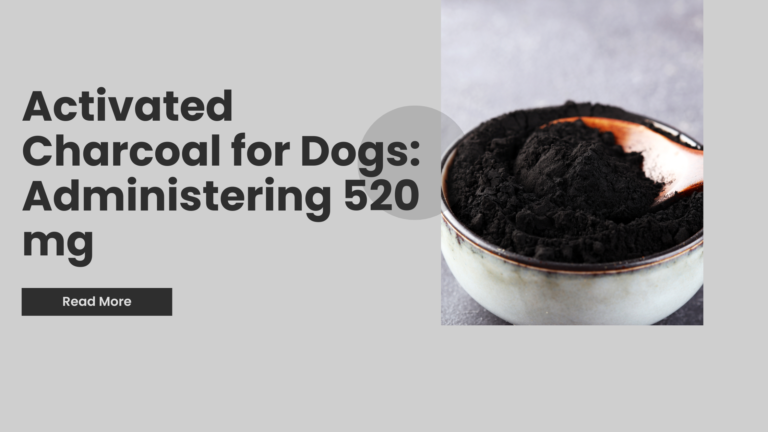Is Echinacea Poisonous To Dogs? What You Need To Know

Are you wondering if Echinacea is safe for your pup? It’s tough to keep up with all the things that could be harmful, so I’m here to break down the facts you need to know about this popular herbal remedy and its potential dangers.
In this article, we’ll uncover what Echinacea is, its potential side effects in dogs, and if it can be given safely. We’ll also cover the answer of whether or not it’s poisonous for your pet. You will also learn about other herbs that may have health benefits for your canine companion. By the end of this article, you will have gained enough knowledge to decide how best to proceed when considering using Echinacea with your dog as part of a holistic approach to health and wellness! So let’s get started!
What is Echinacea?

Echinacea, with its vibrant purple petals and striking cone-shaped center, is like a hidden treasure in nature’s garden. This herbal marvel has captivated the attention of modern society, as people seek natural alternatives to support their immune system and overall well-being.
For centuries, humans have turned to Echinacea for its potential health benefits. Its roots lie deep in folklore medicine, where it was believed to possess mystical powers that could ward off evil spirits and protect against sickness. Today, scientific studies have shed light on the herb’s true capabilities.
One of the main reasons why Echinacea has skyrocketed in popularity is due to its ability to enhance immune function. It acts as a warrior for our bodies’ defense systems by stimulating white blood cells and boosting their activity. This means that when we come into contact with pesky pathogens or viruses trying to invade our bodies, Echinacea rallies our troops those brave soldiers known as antibodies to fight them off more effectively.
But this daisy-like wonder doesn’t stop at bolstering immunity; it also showcases remarkable healing properties. From soothing sore throats and reducing upper respiratory symptoms during colds or flu seasons to alleviating inflammation caused by arthritis or skin conditions like eczema, Echinacea works wonders when it comes to restoring balance within our body.
So next time you find yourself yearning for a natural way to support your immune system or combat common ailments, consider embracing the power of Echinacea. With its rich history intertwined with human lore and an ever-growing body of scientific evidence backing up its potential benefits, this elegant herbal remedy might just be nature’s gift waiting for you amidst bustling modern life.
If you’re interested in learning more about dogs and and how to take the right care of them, we have a wealth of resources for you at cleverdogcare.com. One topic that might catch your attention is which provides practical tips on keeping your dogs healthy and not exposed to any diseases. We also have a comprehensive dog guide that covers various topics, including ensuring you have a hassle-free guide.
Furthermore, we invite you to explore our study on the latest query which offers valuable insights on understanding the benefits and making an informed decision.
Potential Side Effects of Echinacea in Dogs
Echinacea, a popular herb known for its potential benefits in humans, may not necessarily have the same effect on our furry friends. It’s important to be aware of the potential side effects it can have on dogs.
Research indicates that Echinacea could trigger allergic reactions in canines. This means that your dog might experience symptoms like itching, swelling, or difficulty breathing after consuming this herb. As pet owners, we must carefully observe any changes in our dog’s behavior or health when introducing Echinacea into their diet.
Moreover, excessive intake of Echinacea may lead to gastrointestinal issues in dogs. They might experience an upset stomach or even diarrhea as a result of consuming too much of this herb. It is crucial to consult with a veterinarian before incorporating any new supplements or herbs into your dog’s routine to ensure their well-being isn’t compromised.
Can Echinacea Be Given Safely to Dogs?

Consult with your veterinarian before giving your dog Echinacea
When it comes to the health of our beloved four-legged friends, we want nothing but the best for them. So, before you jump on the bandwagon and start administering any new supplement or medication to your furry companion, it is absolutely vital that you consult with your trusty veterinarian first.
Your vet knows your dog’s specific health condition like no one else does. They have spent years studying and treating animals, so they are well-equipped to evaluate whether using Echinacea would be safe and appropriate for your pup. Just as humans can have different reactions to medications, dogs may also exhibit varying responses depending on their individual circumstances.
Another important reason why consulting with a vet is crucial is because they will provide you with proper dosage instructions tailored specifically for your dog. Different factors such as size and overall health play a role in determining the right amount of Echinacea that should be administered. Your vet will take all these aspects into consideration and guide you accordingly.
In conclusion, when it comes to introducing any new supplement or medication into your dog’s routine, always remember that professional guidance is key. Consultation with a veterinarian ensures that you make informed decisions regarding your pet’s wellbeing while minimizing potential risks along the way.
Is Echinacea Poisonous for Dogs?
Contrary to what many people believe, there is no concrete evidence that suggests Echinacea is poisonous for dogs. However, it’s important to note that every dog may react differently when given this herbal supplement. Therefore, it is crucial to closely monitor your furry friend’s response after administering Echinacea.
If you decide to give your dog Echinacea supplements and notice any adverse effects or unusual behavior, don’t hesitate to contact your veterinarian right away. While it’s rare for dogs to have negative reactions to this herb, it’s always better to err on the side of caution when it comes to our beloved pets’ health.
Now let me break down why monitoring their response after giving them Echinacea is so essential. Dogs can exhibit a wide range of symptoms if they have an adverse reaction. These symptoms may include vomiting, diarrhea, excessive drooling, lethargy, or even difficulty breathing. It’s important not only to observe your pup for these signs but also their overall behavior and well-being.
In order to make things easier for you as a pet owner and ensure the best care possible for your doggo, discussing any concerns with a veterinary professional should be at the top of your list. This way you can obtain expert guidance tailored specifically for your pup and ensure their safety while reaping potential benefits from using Echinacea supplements.
Remember: every dog is unique! So keep a close eye on how they respond after taking Echinacea and reach out for help if needed because nothing beats peace of mind when it comes to our four-legged companions!
Other Herbs That May Benefit Canine Health
If you’re looking for natural remedies to support your furry friend’s wellbeing, but you have concerns about using echinaceae specifically, there are plenty of other herbs that can be beneficial for your dog. One herb worth considering is turmeric. Known for its anti-inflammatory properties, turmeric may help support joint health and reduce pain in dogs. It’s a great option if your dog suffers from arthritis or any other inflammatory condition.
Another herb to consider is chamomile. This gentle herb has calming effects and can be used to soothe anxiety or promote better sleep quality in dogs. If your pup gets nervous during thunderstorms or car rides, chamomile could be a game-changer.
Milk thistle is another fantastic herb that supports liver health and aids in detoxification processes in dogs. It can be especially helpful if your dog has been exposed to toxins or medications that may harm their liver.
Ginger is well-known for its ability to alleviate nausea and digestive issues in humans, but it also works wonders for our canine companions. If your dog experiences motion sickness or an upset stomach from time to time, ginger might just do the trick.
Peppermint has been found to relieve gastrointestinal discomfort such as bloating or gas in dogs. A small amount of peppermint oil added to their food can make a big difference.
Valerian root is commonly used as a natural sedative to promote relaxation and relieve stress or anxiety in dogs. If you notice signs of anxious behavior like excessive barking or destructive chewing when you leave the house, valerian root could provide some much-needed relief.
Dandelion root might not sound glamorous, but it offers numerous benefits for canine digestion! It aids digestion, supports kidney function, and acts as a mild diuretic which helps eliminate waste from the body more efficiently.
Remember that just like with Echinacea; it’s essential always consult with your vet before introducing any new herbs or supplements into your dog’s diet routine. Their expertise will ensure that the chosen herb is safe and suitable for your furry friend’s specific health conditions.
Conclusion
Echinacea is an herb that is commonly used to treat ailments in humans, such as colds and other infections. Although there isnt much research about its use in dogs, some people believe it can help their pets health too.
Because Echinacea has been known to interact with medications and even cause digestive upset, the decision whether or not to administer it should be made carefully after consulting with your vet. Alternative herbs like slippery elm bark provide anti-inflammatory benefits without the same risks of side effects associated with Echinacea. Slippery elm bark works by coating the throat and stomach lining to facilitate healing. This helps reduce coughing, vomiting, diarrhea and other gastrointestinal issues common problems faced by dog owners. Other potential herbs include licorice root for inflammation relief and goldenseal which may help boost immunity when administered correctly according to veterinarian’s instructions .
FAQ
1. Is Echinacea poisonous to dogs?
– No, Echinacea is not poisonous to dogs. It is safe for them when used in recommended amounts.
2. Can I give my dog Echinacea supplements?
– Yes, you can give your dog Echinacea supplements as long as you follow the appropriate dosage recommended by a veterinarian.
3. How does Echinacea benefit dogs?
– Echinacea can help boost a dog’s immune system and provide support during times of illness or stress. It may also aid in reducing inflammation and promoting overall health.
4. Are there any potential side effects of giving my dog Echinacea?
– In general, Echinacea is considered safe for most dogs with minimal side effects reported. However, some rare cases may experience gastrointestinal upset or allergic reactions; consult with your vet if concerned.
5. Can I use human-grade Echinacea products for my dog?
– While human-grade products might seem tempting, it’s best to use specifically formulated pet-friendly versions to ensure proper dosing and avoid any potential additives that may be harmful to dogs.






